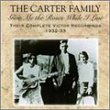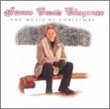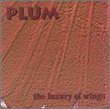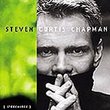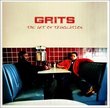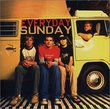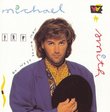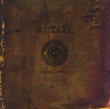| All Artists: Woody Guthrie Title: Columbia River Collection Members Wishing: 2 Total Copies: 0 Label: Rounder / Umgd Release Date: 10/25/1990 Genres: Folk, Pop Style: Traditional Folk Number of Discs: 1 SwapaCD Credits: 1 UPCs: 011661103627, 011661103610, 011661103641, 4007198839845 |
Search - Woody Guthrie :: Columbia River Collection
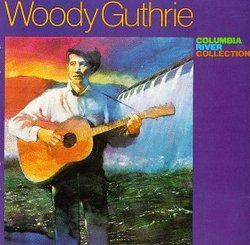 | Woody Guthrie Columbia River Collection Genres: Folk, Pop
No Description Available. Genre: Folk Music Media Format: Compact Disk Rating: Release Date: 10-JUN-1989 |
Larger Image |
CD DetailsSynopsis
Product Description No Description Available. Genre: Folk Music Media Format: Compact Disk Rating: Release Date: 10-JUN-1989 Similar CDsSimilarly Requested CDs
|
CD ReviewsEssential Guthrie Howard Sauertieg | Harrisburg, PA USA | 07/26/2000 (5 out of 5 stars) "Like Dust Bowl Ballads, the Columbia River Collection can be a bit tedious - guitar & harmonica and Woody's vocals deliver traditional melodies and Woody's clever but unpretentious lyrics. Dust Bowl Ballads was a "concept album" before that term came into being, and so is this collection. Dust Bowl Ballads has a more homogeneous sound, as the songs were recorded during one session at a New York studio. The Columbia River Collection gathers recordings from here and there, so the sound and recording quality varies from song to song. But Woody wrote nearly all, if not all, of these songs during a month-long stint with the government-sponsored Bonneville Dam project. This collection is more optimistic than Dust Bowl Ballads; Woody only protests that Uncle Sam doesn't sponsor more projects like the Bonneville Dam. Woody was in his prime in the early 1940s, and every song here has some special quality to enlighten and amuse the listener. They celebrate Work and Utility and Ambition. Every American can be proud of them; most Americans will learn something from them." Woody Guthrie write for the BPA for ten dollars a song Lawrance M. Bernabo | The Zenith City, Duluth, Minnesota | 10/14/2005 (5 out of 5 stars) "Woody Guthrie is the father of American Folk Music (Joe Hill would be the grandfather, Peter Seeger the uncle, and Bob Dylan the poet laureate). Guthrie worked for the Bonneville Power Administration in the month of May 1941 as a "information consultant" for the U.S. Department of the Interior. During that month he wrote 26 sons about the dams being built on the mighty Columbia River that flows between Oregon and Washington to the sea. Seventeen of those songs are collected on this 1988 album that reflects one of the most productive periods of Guthrie's prolific career and some of his best songs such as "Hard Travelin'," "Grand Coulee Dam," and "Pastures of Plenty."
The songs on the "Columbia River Collection" were necessary because the BPA was engaged in a political battle in the Pacific Northwest to own the power being produced by the Columbia River dams. There were elections that would determine if the region would have public or private ownership and distribution of electricity, and Guthrie's songs were basically political ads on the BPA's behalf. The BPA made a short film about the dams, "Hydro," and wanted to make a feature length musical film to show in story and song how the power generated by the dams, administered by the BPA, would bring a better life to the citizens of the Pacific Northwest. Folklorist Alan Lomax heard about the plan and recommended Guthrie to write the songs. Guthrie was unemployed so he drove up from southern California to Portland with his wife Mary and their three children, packed in an old Pontiac. The 28-year-old singer auditioned for the BPA's director, Dr. Paul Raver, who gave Guthrie a 30-day contract as a temporary employed at the rate of $266.66 a month to write a song a day. Here you will find a mixture of anthems, talking blues, and ballads from America's troubadour. The signature song here would have to be "Roll on, Columbia," which credits Leadbelly as a co-writer because Guthrie uses a chorus from "Irene Goodnight." Students of folk music will notice that Guthrie borrowed from traditional folk songs including "Old Smokie," "Pretty Polly," "Muleskinner's Blues," and others as well. Eleven of these tracks are Guthrie's original recordings, made in Portland, Oregon in 1941 but never released until now, including "Roll on Columbia" and "Roll Columbia, Roll." Only a few of the songs made it into the soundtrack of the actual film, "The Columbia," which was not released until 1948, at which point neither a propaganda film nor Guthrie songs were needed to prove the impact of the BPA on the Pacific Northwest. We are fortunate to have these recordings because in 1953 the Eisenhower administration ordered all copies of the film and its songs destroyed when it was decided Guthrie was a communist. But the acetate disks still remain and so do these songs. Woody Guthrie certainly supported the working man and as indicated by the lyrics of "The Biggest Thing That Man Has Ever Done" he saw the dams on the Columbia River as monuments to the working class that were going to bring significant improvements to their daily lives. The other six songs, including "Pastures of Plenty," were previous released by Smithsonian Folkways. There is a lot to be said about finally hearing Guthrie sing songs like "Jackhammer Blues" that I know from Guthrie tribute albums and such. But what is important here is that you have most of Guthrie's songs from this period on a single album. Along with "Dust Bowl Ballads" this is one of the most thematic Woody Guthrie albums available and Rounder does a pretty good job of figuring out an order in which to put the tracks." |

 Track Listings (17) - Disc #1
Track Listings (17) - Disc #1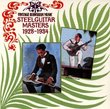
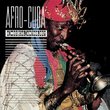
![Purcell: Le Roi Arthur [Highlights]](https://nationalbookswap.com/cd//m/00/0800/6150800.jpg)
